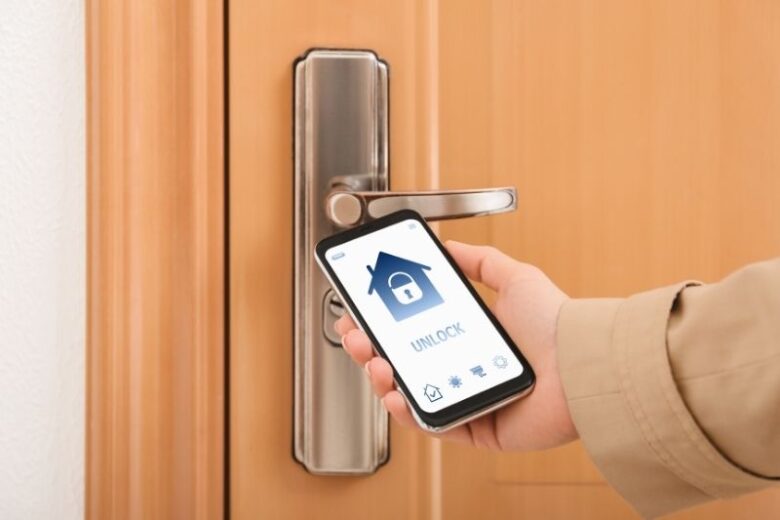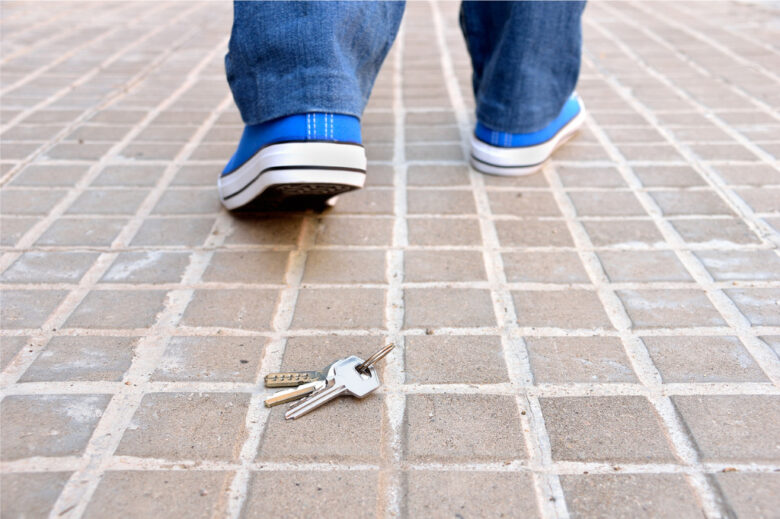One’s own home means security, safety and is the place where the family gets together after a long day and discusses the latest news. However, this is only the case until third parties simply gain access to the apartment without consent. This does not necessarily have to involve a break-in by strangers. It is often the case that the ex-partner still has an imitation key. In some cases, landlords also insist on being handed a key in case of an emergency. Here the question arises whether it is justified to simply change the door lock.
Contents
- Is the tenant allowed to change the door lock?
- Is the door lock to be replaced by the tenant if the key has been lost?
- Is the tenant obliged to notify the landlord of the loss of keys?
- Who bears the costs for a broken apartment lock?
- Is the landlord entitled to simply replace the door lock?
- It is not a good idea to simply break down the door!
Is the tenant allowed to change the door lock?
Some leases or house rules state that it is forbidden to change one’s own door lock. This is not legally tenable. Whether it is your own apartment lock or a locking system, it is definitely allowed to change the lock. It is important to know that in such a case you have to bear the costs yourself. It is also important to keep the old lock. If you move out, the landlord may insist on the installation of the old lock.
It is worth talking to the landlord if the door lock is a security lock. In this case, it is necessary to drill out the door when replacing it. This not only causes higher costs. In addition, there is a risk that the door will be damaged in the process. All costs incurred by replacing the lock by the tenant’s own hand are to be borne by the tenant alone.

Source: butterflymx.com
Is the door lock to be replaced by the tenant if the key has been lost?
It is always a good idea to leave a spare key with friends or neighbors. It is all too easy for a key to get lost unnoticed in everyday life. If no spare key is deposited somewhere, good advice is expensive. In principle, every tenant has a contractual duty of care. This applies to the apartment itself and everything connected with it. Accordingly, it is important to always take good care of the key. If the key is lost despite all efforts, the tenant alone is liable for it.
This means that if the key is lost and the key has to be changed, the tenant has to pay for it. Under certain circumstances, this can result in high costs for the tenant. It can cost several thousand euros if a locking system is installed in the apartment building. In this case, the lost key unlocks not only the tenant’s own apartment, but also the front door, and in some cases even the garage. In order not to stumble here, it is advisable to make sure that the liability insurance covers a lost key.
Is the tenant obliged to notify the landlord of the loss of keys?
If the apartment key is lost or falls victim to theft, the landlord must generally be informed as soon as possible. How to proceed now depends on whether the security of the rented property is still guaranteed or not. If it is a theft of the handbag including keys and identification documents, it is easy for the thief to find out the corresponding address to the key. If it is also a locking system, the thief can gain access not only to the apartment in question, but to the entire rental property. This means that the entire locking system must be changed as quickly as possible.
However, if the key has simply been lost without any indication of where it fits, it may even be sufficient to just have a replacement key made. However, the decision on this is up to the landlord in any case.
If the landlord is not informed about the loss of the key, the tenant is liable for all damages incurred. In addition, if the landlord notices that a key is missing when the tenant moves out, he can claim compensation for the lost key.

Source: crocodilian.de
Who bears the costs for a broken apartment lock?
It can happen that the lock has to be replaced by the locksmith because it no longer locks, i.e. it is defective. Here, there are different regulations regarding the assumption of costs. In the case of a door lock that is getting on in years and the wear and tear shows in such a way that it no longer closes properly, the landlord must pay for the costs if the door lock is replaced.
This is due to the fact that the landlord is responsible for ensuring that the rented apartment can be used in accordance with the contract during the entire rental period. If, on the other hand, the tenant is responsible for a defect in the door lock, the tenant shall bear the costs of both the emergency door opening and the new installation of a lock.
It is important to know that at night and on weekends the cost of lock replacement by the locksmith can be very high. If it is then additionally about the removal of a security lock, several hundred euros can quickly add up. Accordingly, it may be advisable to consult a lawyer about who will pay for the costs of replacing the lock. In this way, a protracted and nerve-racking dispute can possibly be avoided.
Is the landlord entitled to simply replace the door lock?
If a tenant finds that when he comes home, he suddenly can no longer unlock his own apartment door and can no longer get into the apartment, he must act quickly. Under no circumstances is the landlord entitled to simply change the lock of an apartment door. He is only allowed to do this if an emergency has occurred. For example, if there is water damage or a fire, the landlord may gain access to the apartment and have the lock broken. However, he has only a very limited period of time. This is within the next few hours, in which he has to hand over all keys belonging to the apartment to the tenant.
It is important to know that a landlord does not have the right to refuse the tenant access to the apartment or to change the door lock, even in the case of a lawful termination without notice. The legal basis here can be seen in a ruling of the Higher Regional Court of Zelle of 16.07.2017. According to the Federal Code Section 858, the replacement of the door lock on the part of the landlord constitutes a prohibited interference. The tenant has at all times the right to which the landlord grants them their possession.

Source: tenants-rights.org
It is not a good idea to simply break down the door!
Although it may sound confusing and complicated at first, it really isn’t. If the landlord denies a tenant access to the apartment, the tenant is entitled to apply for a temporary injunction. In this way, he regains possession of the apartment key within a very short time. It is not a good idea to simply break open the apartment. This again constitutes unlawful interference on the part of the tenant. Involving the court’s legal application office is therefore the more appropriate course of action here.
